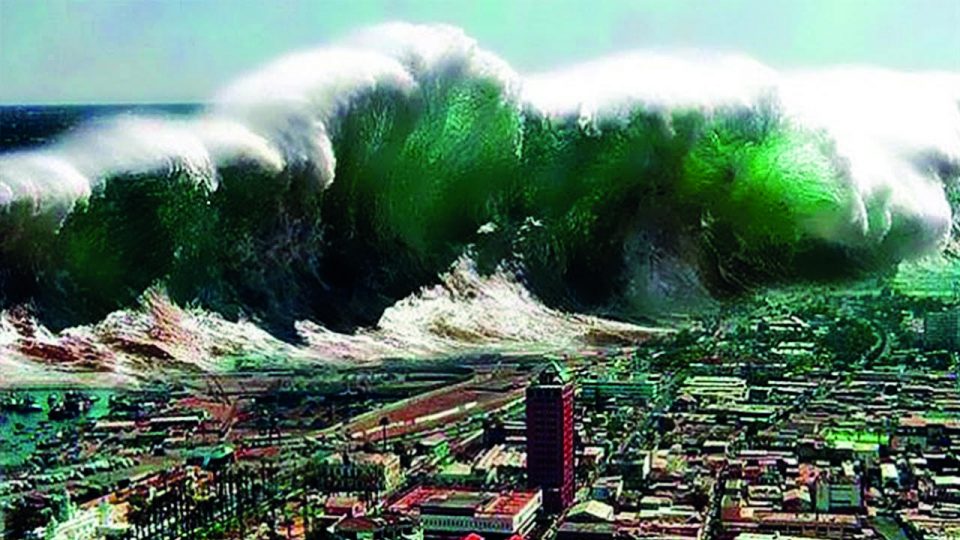Natural disasters can bring out the worst in a handful of people.
After the September 28 earthquake and tsunami that killed an estimated 5,000 people in Central Sulawesi and left about 70,000 homeless, appeals for financial assistance were widely disseminated via text messages and social media. Not all were genuine.
One text message, sent from multiple mobile phone numbers, read, “Please help our family, victims of the Palu-Donggala tsunami earthquake via BRI account 780601004778535 in the name of Risa Ristianti, BRI branch Palu-Donggala.”
Most recipients of the message ignored it. Some transferred money. And some were suspicious and contacted police. Cyber-crime police investigated and tracked down the person behind the message. He was Mansur, a 41-year-old rice farmer from Amparita, Sidrap regency, in the middle of South Sulawesi province.
When arrested at his house on October 10, he confessed to not having any relatives in the disaster zone. He said television news reports on aid flowing in for the tsunami victims had inspired him to send out his message seeking donations.
For a man professing to be an impoverished farmer, he was professional in his actions. First, he purchased an ATM card, personal identification number and savings passbook for Rp1.2 million (US$80) from a woman who held an account with Bank Rakyat Indonesia (BRI). Then he purchased 13 USB modems and several SIM cards.
Next, he downloaded SMS Caster, an application used by spammers, fraudsters and other nuisances to send out thousands of text messages to random mobile phone numbers. He said he learned how to use the software after watching an online tutorial on his laptop.
Mansur said he had withdrawn Rp10 million (US$660) from the account and used it to buy “rice and other daily needs” for his family. He claimed he was “forced” into fraud by economic necessity because his crops had failed for the past two years. Police said they were awaiting authorisation to check precisely how much money had been transferred into the bank account.
If charged under the Electronic Information and Transactions Law, Mansur could be jailed for up to six years or fined Rp1 billion.
Police urged the public to be cautious when donating. National Police spokesman Setyo Wasisto said people wishing to assist should make donations through official channels or reputable community organisations, or through relief efforts run by political organisations or the military and police.
CHARITY NETS
In the aftermath of natural disasters, it’s not uncommon to see people standing with nets or collection boxes on village roads, asking for donations from passing motorists.
After the Palu disaster, there were reports of fraudulent collectors operating as far away as Barito Kuala regency in South Kalimantan province. Police said that if people are asking for donations, they should have an official authorisation letter from the local community administration office.
In North Sulawesi, residents of Solimandungan village found hundreds of items of used clothing abandoned on a roadside, along with cardboard boxes on which “Help Palu-Donggala” had been written. There were also torn envelopes.
Police suspect that a person or group had been collecting donations on behalf of the tsunami victims, and then kept the money and dumped the clothes.
In Jakarta, a syndicate collecting donations in charity boxes was collecting an estimated Rp80 million per month for unclear purposes, as the operators were not an official charity.
In neighbouring Malaysia, efforts to raise funds for the Palu disaster victims have also attracted scammers. Malaysia’s National Disaster Management Agency on October 13 issued a statement advising it had never sent out a message through SMS or WhatsApp soliciting donations for Sulawesi. Fraudulent messages had requested donations to be transferred to a Malaysian bank account.
CHILD SURVIVOR RAPED
Hundreds of survivors of the Palu quake and tsunami were airlifted to the South Sulawesi capital of Makassar, where they are now being housed in refugee camps. Online news portal liputan6.com reported that a seven-year-old girl who survived the tsunami was allegedly raped by two teenage boys on October 16 at a refugee camp set up at a housing complex in Sudiang village in Makassar.
The two 14-year-old boys were locals, who lived near the refugee camp. They had approached the girl while she was playing alone and pulled her into a nearby garden. One of the boys was soon arrested, while the other remains at large.
UNCLAIMED FORTUNES
Natural disasters in Indonesia are sometimes used as bait by advance-fee inheritance scammers, often operating from Africa. After the 2004 Indian Ocean tsunami that killed about 230,000 people, most of them in Indonesia’s Aceh province, scammers started sending out emails, claiming to be controlling bank accounts of people killed in the disaster.
Scammers pose as bankers and invite their targets to act as the next of kin of a deceased person, promising to split the money with them. Anyone foolish enough to accept such an offer is asked to pay a series of fees, which stop only when the victim realises they have been scammed.
For example, one poorly written email reads: “I am Mr Zahoor Halwa, a banker by profession from Burkina Faso … I have the opportunity of transferring the leftover sum of $10.5 million that belongs to late Mr Rudi Harmanto from Indonesia who died along with his entire family in the Asia earthquake 2004, and since then the fund has been in a suspense account. Because of the static of this transaction I want you to stand as the next of kin so that our bank will accord you their recognition and have the fund transfer to your account. This money can be shared between us in the ratio of 50/50.”
Don’t be surprised if such emails start citing unclaimed bank accounts held by victims of the Central Sulawesi disaster.
If you do want to donate to assist survivors of the disaster, consider reputable groups, such as Médecins Sans Frontières (Doctors Without Borders), which is assisting health centres in Central Sulawesi.




